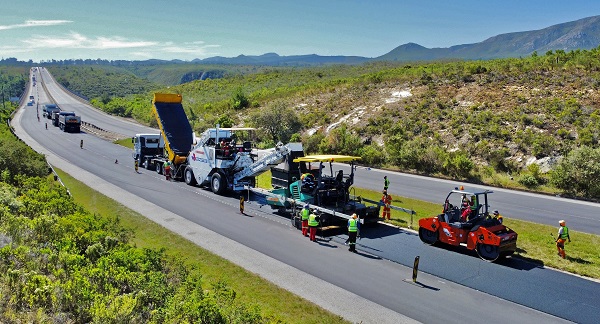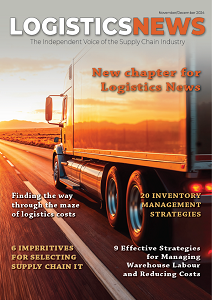The use of large amounts of recycled rubber crumb for the manufacture of road surfaces and related products is propelling South Africa towards a circular economy where waste products are usefully used to address key infrastructure needs, Dr Mehran Zarrebini, CEO of Hammarsdale-based radial truck tyre recycler, Mathe Group, points out.
Much of the production from Mathe Group factory, which recycles approximately 1 000 radial truck tyres per day to produce 45 tons of rubber crumb, goes to bitumen product manufacturer, Tosas, for the manufacture of rubber modified bitumen, a product that is being used by the South Africa National Road Agency (SANRAL) for massive upgrades to the N1 in Gauteng and the N2 / N3 leading from the port of Durban.
Bitumen product manufacturer, Tosas, approached Mathe Group in 2016 for the supply of rubber crumb. This was shortly after Mathe Group moved from a small facility in New Germany to its present location in Hammarsdale. Since then, it has increased crumb production significantly.
Tosas has been operating for more than five decades and was originally jointly owned by Total and Sasol. The company became part of the JSE-listed Raubex Group and operates from seven locations - Wadeville, Bloemfontein, Worcester, East London, Durban, Gaborone and Tsumeb in Namibia.
Tosas became a leading bitumen-supplying company by always keeping abreast of the latest technological developments. The company has one of the best bitumen testing laboratories in Southern Africa and is a world leader in the development of new bitumen products.
Deon Pagel, MD of Tosas explains that although people still refer to so-called black top roads as “tarred” roads, the use of tar which is extracted from coal and is carcinogenic has been discontinued and replaced with bitumen, which is extracted from crude oil.
Bitumen, which, for chipseal applications is sprayed onto the road surface at up to double the temperature of boiling water, seals the top road layerworks, protecting the foundation layers beneath, acting as a waterproofing layer. Alternatively, it can be mixed in with the asphalt and acts as a glue, strengthening the road itself.
This bitumen that exits a refinery – known as penetration grade bitumen – is modified with the addition of a variety of different modifiers. Rubber modified bitumen is created by mixing 20% rubber crumb with 80% bitumen and extender oils.
“This is one of the most superior road bitumen products in the world and, on top of that, you have the benefit of recycling. You take old tyres and convert them into a usable product. It is a win-win,” he notes.
This win-win has extended to the point where bitumen rubber has now been generically specified by government and other road authorities and owners for use in the construction of roads throughout the country. Mathe Group’s role goes beyond simply producing rubber crumb through ambient grinding of radial truck tyres for Tosas. Together with Tosas, it designed and developed a second plant to produce what is known as New Crumb Rubber Technology (NCRT). This involves coating the rubber crumb with aromatic oil and specialised waxes to produce a pre-swollen rubber crumb that is bitumen rubber for asphalt mixes and spray seal applications that have greater longevity and much lower mixing temperatures.
Zarrebini, who is now looking to install a further line that will double output at Mathe Group’s Hammarsdale factory, is confident that the company can accommodate the growing need for rubber crumb for roads as well as other applications.
“The recycling plant that we have designed is flexible and we can manufacture different particle sizes of rubber crumb for different end uses at the same time. The specific rubber crumb size that is used for rubber modified bitumen is of the finer quality. The courser grades are used as infill for artificial turf and as elastic layers for sports applications. The material that is finer than that used in rubber modified bitumen is utilised in non-slip paints, automotive brake pads and to manufacture new tyres,” he explains.
He adds that there is room for growing the amount of rubber crumb utilised in the roads industry although this is largely dependent on SANRAL awarding tenders for infrastructure projects and having the available funding to follow through with these projects.
“From a production perspective, we have the flexibility of only manufacturing the grade of rubber crumb utilised in rubber-modified bitumen or if the demand is lower, then we can switch to manufacturing a combination of grades of rubber crumb for other industrial uses. During 2023, we implemented machinery upgrades which enhanced output. We continue to invest in maintaining and upgrading our equipment. In 2024, we will see further enhancements to the plant which will result in greater output,” he concludes.

.jpg)


